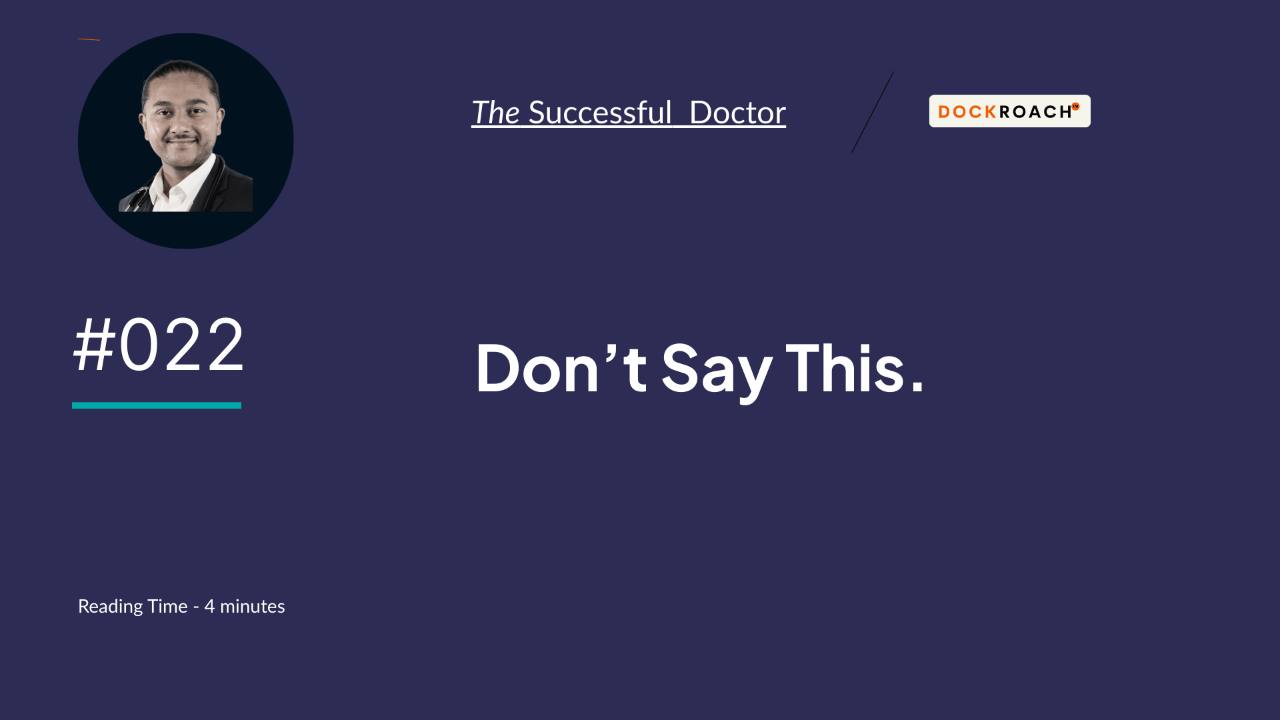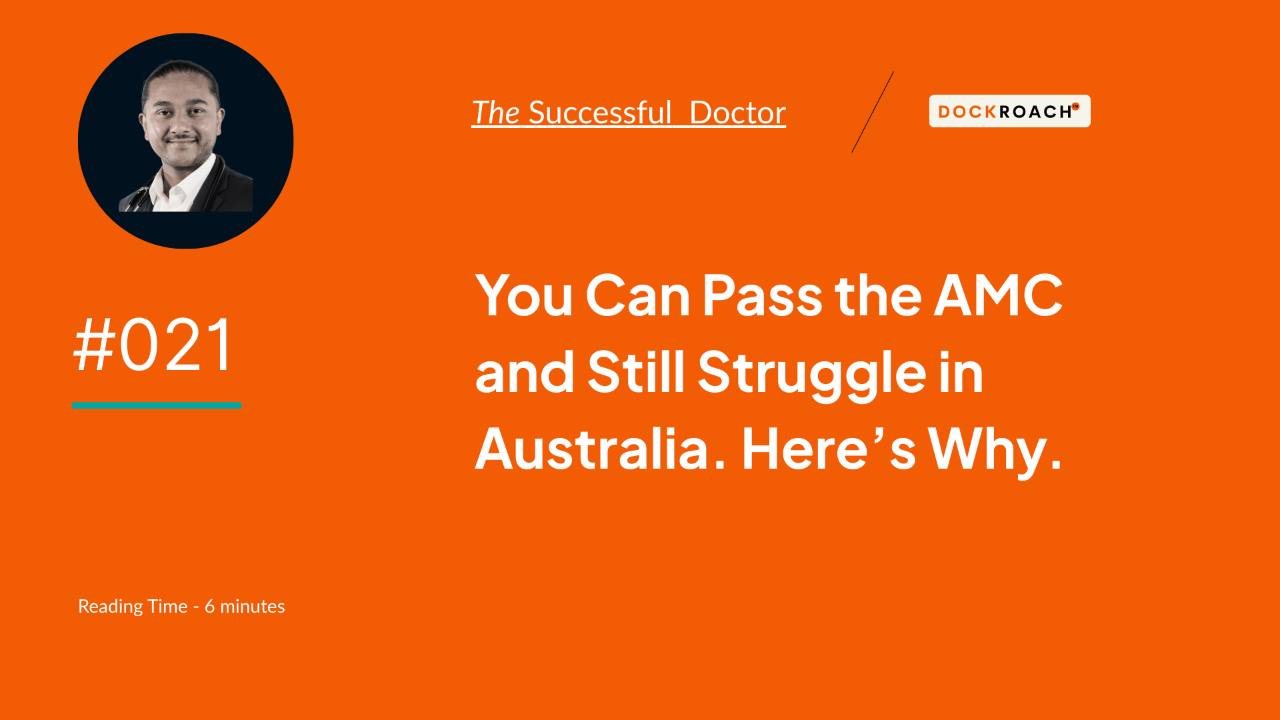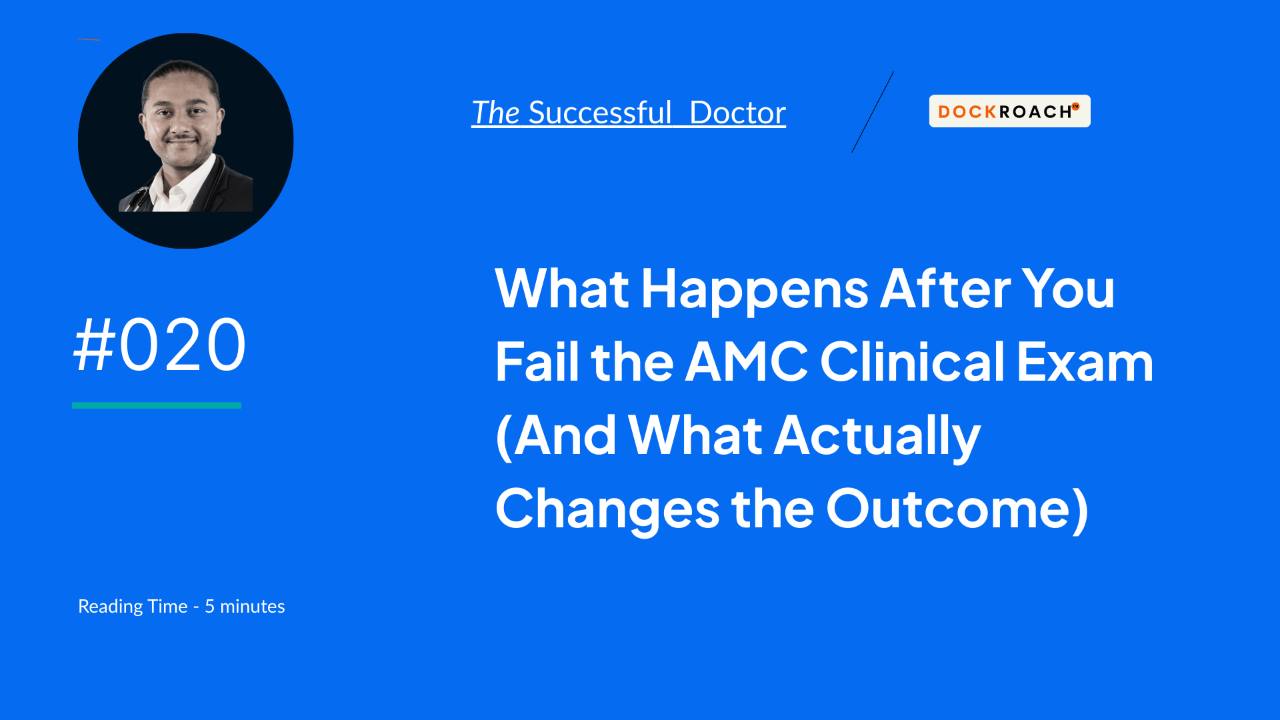Don’t Just Study for the Clinical Examination. Embrace Role Playing.
Read time: 5 minutes
Today, I’m going to show you why studying alone is not enough to pass the AMC Clinical Examination — and why role playing should take up 80% of your preparation time.
This newsletter will unpack how role playing builds the frameworks, communication skills, and confidence you need to thrive under exam conditions.
Studying is essential — but overstudying is a trap.
Too many candidates spend 80% of their time reading and only 20% practicing.
To pass, you need to flip that.
Spend 20% on studying and 80% on role playing — because the exam is not just about what you know, but about how you deliver it.
If you know me, you’ve probably heard me say this often:
Candidates don’t fail because they lack knowledge — they fail because:
-
They can’t apply frameworks under pressure
-
They fumble communication with patients and examiners
-
They lose confidence when the clock starts ticking
Role playing is the only preparation tool that fixes all three. You see the picture?
Don’t just study for the AMC Clinical Exam — train for it.
Role playing turns knowledge into skill, and skill into confidence.
3 Key Reasons to Embrace Role Playing:
-
Frameworks Are Essential to Meet the Predominant Areas of Assessment (PAA)
-
Communicating Effectively
-
Confidence
Let's dive in.
1. Frameworks Are Essential to Meet the Predominant Areas of Assessment (PAA)

(Diagram explanation) Let’s take an example of an AMC diagnostic station: a framework guides each phase — A for systematic history, B for narrowing differentials, and C for clear, patient-centered explanation. Without it, performance scatters; with it, you stay focused, systematic, and clear — just what examiners are looking for.
Without frameworks, your performance will be scattered.
-
You need frameworks to connect history-taking to diagnostic formulation.
-
You need frameworks to explain diagnoses and management to patients.
-
You need frameworks to stay inside the 8-minute time limit — a limit that no real-world hospital consultation prepares you for.
The 4 PAAs you must cover:
-
History-taking
-
Physical examination
-
Diagnostic formulation
-
Management, counselling, and education
Real-world clinical experience can’t fully prepare you — because real patients don’t follow exam rules, and real clinics don’t run on 8-minute timers.
Practice role playing for the exam, so you can be effective and efficient in the exam.
2. Communicating Effectively
In role playing, you consciously practice:
-
Articulating your words for both the patient and the examiner.
-
Translating medical jargon into easy, layperson language for the patient, not the examiner.
This is where even experienced doctors stumble.
Real-life communication habits don’t always match what the AMC exam demands.
3. Confidence
Confidence isn’t magic — it’s built.
And role playing is where you build it.
-
Will you be 100% confident for all 3 hours of the in-person clinical exam? Probably not.
But as William James reminds us:
“Action seems to follow feeling, but really action and feeling go together; and by regulating the action… we can indirectly regulate the feeling.”
— The Principles of Psychology
💬 → Meaning: Act confidently even if you don’t feel it — and the feeling will catch up.
-
With practice, you can train yourself to access moments of full confidence, when it matters most.
-
Part of it is mindset. Part of it is muscle memory. Part of it is acting confident — until you become confident.
And all of that comes from role playing.
Two Simple Exercises to Try This Week
✅ Exercise 1: Spend one hour reading about a clinical condition.
✅ Exercise 2: Spend one hour role playing the same condition.
At the end of the week, reflect:
-
Which gave you better recall?
-
Which exposed areas of weakness that need polishing?
-
Which improved your flow, confidence, and time management?
Track your outcomes — you’ll likely find that consistent role playing delivers exponential returns.
“We are what we repeatedly do. Excellence, then, is not an act, but a habit.”
— Aristotle
That’s all for now. See you next fortnight.






